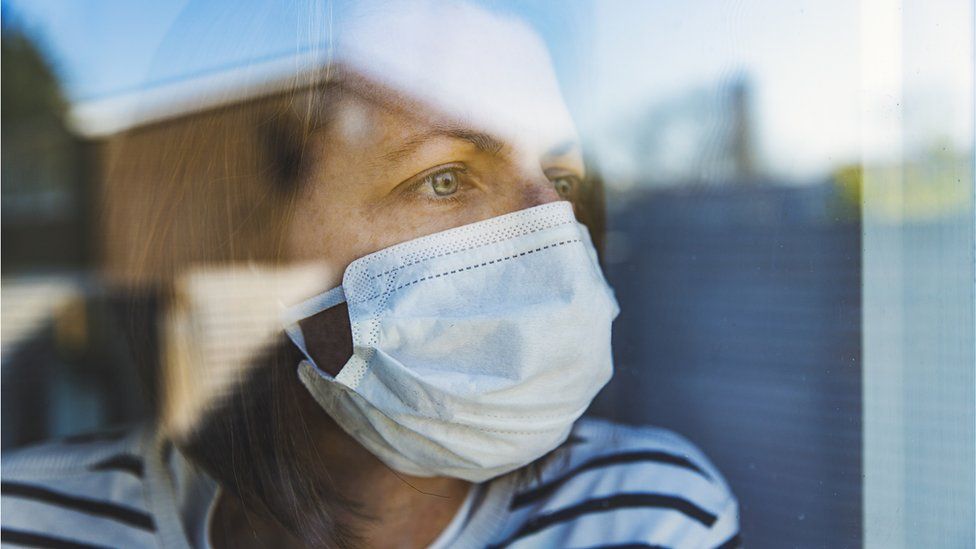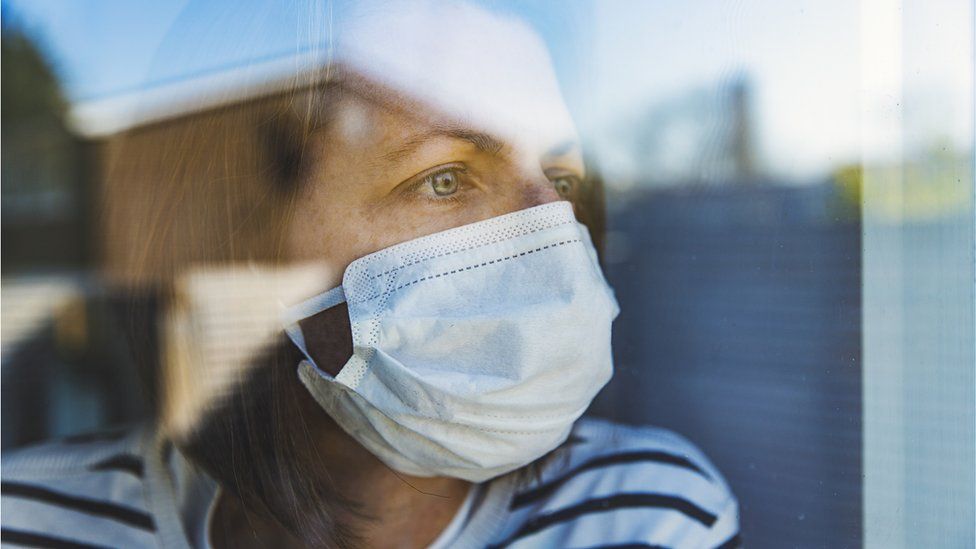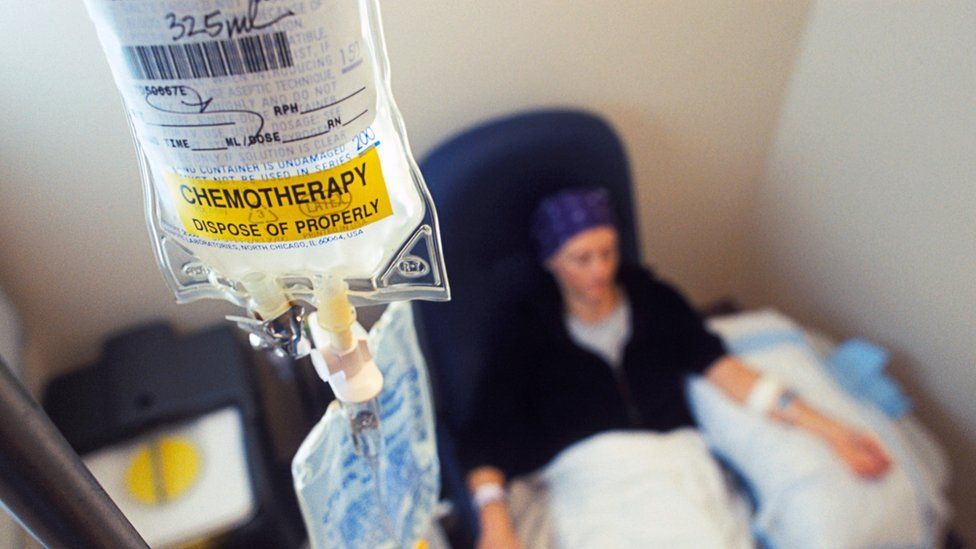Coronavirus: Do people have to shield and what are the rules?
As restrictions change across the country, how should more vulnerable people keep themselves safe? …

.css-94m6rd-HeadingWrapper{border-bottom:solid 1px #BABABA;padding-bottom:1.5rem;}.css-94m6rd-HeadingWrapper > *:not([hidden]):not(style) ~ *:not([hidden]):not(style){margin-top:1rem;}
By Michelle Roberts
Health editor, BBC News online
- .css-8d0yke-MetadataStripItem{display:inline-block;white-space:nowrap;margin-top:0.25rem;max-width:calc(100% – 1em);}.css-8d0yke-MetadataStripItem::after{content:”;display:inline-block;height:1.25em;border-left:#BABABA 1px solid;margin:0 0.5em;vertical-align:-0.25em;}.css-8d0yke-MetadataStripItem:last-child{max-width:100%;}.css-8d0yke-MetadataStripItem:last-child::after{content:none;}
.css-1kpdaxb-TagShareWrapper{display:-webkit-box;display:-webkit-flex;display:-ms-flexbox;display:flex;}.css-1kpdaxb-TagShareWrapper > *:not([hidden]):not(style) ~ *:not([hidden]):not(style){margin-left:0.5rem;}
.css-vk3nhx-ComponentWrapper{margin:1.5rem 0;}
 .css-1ecljvk-StyledFigureCopyright{position:absolute;bottom:0;right:0;background:#3F3F42;color:#EEEEEE;padding:0.25rem 0.5rem;text-transform:uppercase;}image copyrightGetty Images
.css-1ecljvk-StyledFigureCopyright{position:absolute;bottom:0;right:0;background:#3F3F42;color:#EEEEEE;padding:0.25rem 0.5rem;text-transform:uppercase;}image copyrightGetty Images.css-uf6wea-RichTextComponentWrapper{margin:1rem 0;max-width:36.25rem;}
.css-14iz86j-BoldText{font-weight:bold;}During the first lockdown, certain people were advised to take extra steps – or shield – to avoid contracting Covid-19, because they were considered more at risk of needing hospital treatment.
As .css-1xgj2ad-InlineLink:link{color:#3F3F42;}.css-1xgj2ad-InlineLink:visited{color:#696969;}.css-1xgj2ad-InlineLink:link,.css-1xgj2ad-InlineLink:visited{font-weight:700;border-bottom:1px solid #BABABA;-webkit-text-decoration:none;text-decoration:none;}.css-1xgj2ad-InlineLink:link:hover,.css-1xgj2ad-InlineLink:visited:hover,.css-1xgj2ad-InlineLink:link:focus,.css-1xgj2ad-InlineLink:visited:focus{border-bottom-color:currentcolor;border-bottom-width:2px;color:#B80000;}@supports (text-underline-offset:0.25em){.css-1xgj2ad-InlineLink:link,.css-1xgj2ad-InlineLink:visited{border-bottom:none;-webkit-text-decoration:underline #BABABA;text-decoration:underline #BABABA;-webkit-text-decoration-thickness:1px;text-decoration-thickness:1px;-webkit-text-decoration-skip-ink:none;text-decoration-skip-ink:none;text-underline-offset:0.25em;}.css-1xgj2ad-InlineLink:link:hover,.css-1xgj2ad-InlineLink:visited:hover,.css-1xgj2ad-InlineLink:link:focus,.css-1xgj2ad-InlineLink:visited:focus{-webkit-text-decoration-color:currentcolor;text-decoration-color:currentcolor;-webkit-text-decoration-thickness:2px;text-decoration-thickness:2px;color:#B80000;}}many parts of the UK face more restrictions due to rising cases of coronavirus across the country, what are the recommendations?
.css-mysbf6-ComponentWrapper-CrossheadComponentWrapper{margin:1.5rem 0;max-width:50rem;padding-top:1rem;max-width:36.25rem;}
.css-qozapo-StyledHeading{font-family:ReithSerif,Helvetica,Arial,freesans,sans-serif;font-weight:500;font-size:1.5rem;line-height:1.75rem;color:#3F3F42;}@media (min-width:37.5rem){.css-qozapo-StyledHeading{font-size:2rem;line-height:2.25rem;}}.css-qozapo-StyledHeading:focus{outline-style:none;}.css-qozapo-StyledHeading:focus-visible{outline-style:auto;}
Is shielding coming back?
It’s not the same as during the first lockdown, when the advice was to stay at home at all times, but clinically extremely vulnerable people are being advised to take extra precautions.
Infection levels in the community reduced over the summer, meaning the risk of exposure became significantly less than in the spring.
This allowed some restrictions, including shielding, to be relaxed.
But rates of new Covid cases have been rising again in the UK.
The new government guidelines strongly advise clinically extremely vulnerable people to stay at home at all times, apart from going out to exercise or attend a medical appointment.
The advice says try to keep all contact with others to a minimum and avoid busy areas. If you go out, maintain strict social distancing, wash your hands regularly and avoid touching your face.
You should also try to stay 2m (6ft) away from other people within your household, especially if they display symptoms of the virus or have been advised to self-isolate.
Can I meet with people that I don’t live with?
The only people able to visit you at home are those in your support bubble – such as a relative or other person who helps with your care needs.
You can go out and exercise with the people you live with or someone in your bubble.
What about work?
The advice says you should not leave the house to work.
If you cannot work from home, you may be eligible for Statutory Sick Pay, Employment and Support Allowance, Universal Credit or the Coronavirus Job Retention Scheme.
What about shopping?
People on the shielding list are strong advised against visiting any shops, including pharmacies.
If you already have a priority delivery slot with a supermarket, that will continue – you do not need to do anything further.
If you cannot access food or medicines, your local council can offer support.
An NHS Volunteer Responders service can help with collecting prescriptions and groceries.
Do I have to follow the advice?
Shielding was never compulsory and it is still your choice to decide what you are comfortable about doing. Everyone in England is expected to follow the lockdown rules.
If possible, take things at your own pace and talk through any worries you have.
What are the recommendations around the UK?
In Northern Ireland, medically-vulnerable and older people are advised to be particularly careful in following the recommendations on limiting contacts.
Who is on the shielding list?
.css-18mjolk-ComponentWrapper{margin:1.5rem 0;max-width:50rem;}
 image copyrightScience Photo Library
image copyrightScience Photo Library.css-1rnnz6t-StyledFigureCaption{background:#3F3F42;color:#EEEEEE;padding:1rem;}
People in high risk categories, who include:
- Solid organ transplant recipients
- Some people with cancer who are undergoing treatments such as chemotherapy and radiotherapy
- People on immunosuppression drugs
- Women who are pregnant and have heart disease
- People with severe respiratory conditions – cystic fibrosis, severe asthma and COPD
- Some people with rare diseases such as severe combined immunodeficiency
- Adults with Down’s syndrome
- Adults on dialysis or with stage 5 chronic kidney disease
The list does not include all elderly people, although they are strongly advised to do social distancing.
What about children and school?
Guidance from the Royal College of Paediatrics and Child Health says that most youngsters with conditions such as asthma, diabetes, epilepsy, and kidney disease do not need to continue to shield and could be removed from the shielding list held by the NHS.
About 90,000 people shielding are under 18. Children will only be removed from the shielding list by their GP or specialist doctor after discussions with the child and their family.
If you have been told that your child no longer needs to shield, they can go to school, college or nursery.
Children who live with someone who is clinically vulnerable, but aren’t themselves, should go to school.


.css-kqym7f-SectionWrapper{margin:1.5rem 0;padding-top:1.5rem;font-size:0.875rem;line-height:1.125rem;}
.css-1nrzmoz-StyledHeading{font-family:ReithSerif,Helvetica,Arial,freesans,sans-serif;font-weight:500;font-size:1.125rem;line-height:1.375rem;color:#3F3F42;}@media (min-width:37.5rem){.css-1nrzmoz-StyledHeading{font-size:1.25rem;line-height:1.5rem;}}.css-1nrzmoz-StyledHeading:focus{outline-style:none;}.css-1nrzmoz-StyledHeading:focus-visible{outline-style:auto;}

